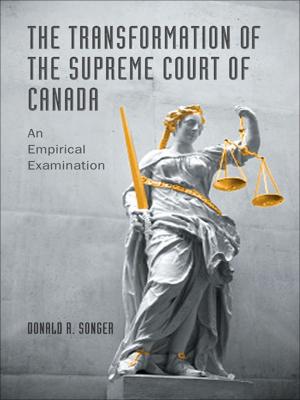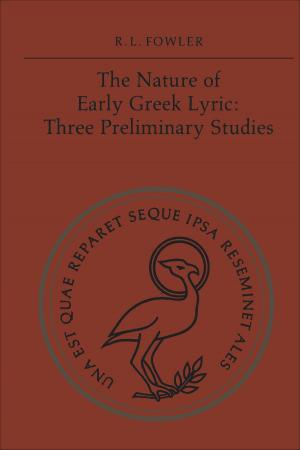The Ethics of Discernment
Lonergan's Foundations for Ethics
Nonfiction, Religion & Spirituality, Philosophy, Religious| Author: | Patrick H. Byrne | ISBN: | 9781442630741 |
| Publisher: | University of Toronto Press, Scholarly Publishing Division | Publication: | February 24, 2016 |
| Imprint: | Language: | English |
| Author: | Patrick H. Byrne |
| ISBN: | 9781442630741 |
| Publisher: | University of Toronto Press, Scholarly Publishing Division |
| Publication: | February 24, 2016 |
| Imprint: | |
| Language: | English |
In The Ethics of Discernment, Patrick H. Byrne presents an approach to ethics that builds upon the cognitional theory and the philosophical method of self-appropriation that Bernard Lonergan introduced in his book Insight, as well as upon Lonergan’s later writing on ethics and values.
Extending Lonergan’s method into the realm of ethics, Byrne argues that we can use self-appropriation to come to objective judgements of value. The Ethics of Discernment is an introspective analysis of that process, in which sustained ethical inquiry and attentiveness to feelings as “intentions of value” leads to a rich conception of the good.
Written both for those with an interest in Lonergan’s philosophy and for those interested in theories of ethics who have only a limited knowledge of Lonergan’s work, Byrne’s book is the first detailed exposition of an ethical theory based on Lonergan’s philosophical method.
In The Ethics of Discernment, Patrick H. Byrne presents an approach to ethics that builds upon the cognitional theory and the philosophical method of self-appropriation that Bernard Lonergan introduced in his book Insight, as well as upon Lonergan’s later writing on ethics and values.
Extending Lonergan’s method into the realm of ethics, Byrne argues that we can use self-appropriation to come to objective judgements of value. The Ethics of Discernment is an introspective analysis of that process, in which sustained ethical inquiry and attentiveness to feelings as “intentions of value” leads to a rich conception of the good.
Written both for those with an interest in Lonergan’s philosophy and for those interested in theories of ethics who have only a limited knowledge of Lonergan’s work, Byrne’s book is the first detailed exposition of an ethical theory based on Lonergan’s philosophical method.















